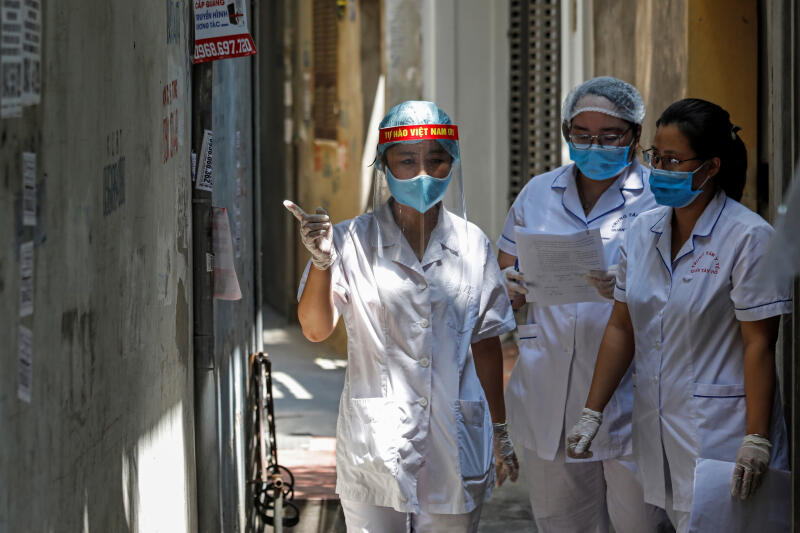Nations need to join forces to innovate in post-Covid-19 world, say experts at WHO forum
Sign up now: Get ST's newsletters delivered to your inbox

Covid-19 hastened Vietnam's use of telemedicine to improve the quality and safety of its healthcare.
PHOTO: REUTERS
SINGAPORE - The Covid-19 pandemic has made the need for innovation more immediate and drastic, said a senior World Health Organisation (WHO) official on Tuesday (Sept 15).
But the complexity of this process "cannot be understated", added WHO regional director for the Western Pacific region Takeshi Kasai, as he urged countries to work together to overcome challenges in a post-Covid-19 world.
Dr Kasai, speaking at the opening of the WHO's three-day virtual Innovation Forum, said the unprecedented pandemic has "upended the ways in which our societies operate, and how we perceive and value the health of ourselves and others".
"It has forced us to reprioritise issues, reoptimise systems and come up with ingenious ways of doing things and to take better care of the most vulnerable," he added.
The pandemic has already forced many countries to innovate, Dr Kasai noted.
One of them is Vietnam.
A top health official of the country cited how Covid-19 hastened its use of telemedicine to improve the quality and safety of its healthcare.
Said Dr Luong Ngoc Khue, general director of medical service administration in Vietnam's Health Ministry: "We have set up working groups consisting of the most experienced clinicians throughout the country to have real time exchange of medical expertise among the experts to aid decision making in treating Covid-19 patients.
He added that telemedicine has also helped healthcare staff mobilise available resources more efficiently.
"We also use telemedicine for in-service training and continuing professional development for healthcare staff."
Dr Luong said his government has since pushed for further digitalisation "in all aspects of life", including the healthcare sector, to ensure adequate and good quality health services can reach those in need.
The forum, whose theme is "Achieving The Health Future We Need", was moderated by the WHO's director of data, strategy and innovation at the Western Pacific regional office, Dr Gundo Weiler.
He said that to help member states in their healthcare innovation efforts, the WHO will launch a regional innovation platform for the Western Pacific in the coming months.
The platform will be centred on three Rs: rethink, research and redesign.
"Innovation can no longer be a buzzword or something that is done by someone else. It is up to all of us to step up and engage with emerging technologies and developments and to apply them in the most appropriate manner to the great challenges that we all face," he added.
The WHO's Western Pacific region includes China, Japan, South Korea, Australia, Singapore, Indonesia, Vietnam and the Pacific island states, among others.
Dr Yasuyuki Sahara, the senior assistant minister for health security and technology at Japan's Ministry of Health, Labour and Welfare, spoke on his country's vision of the next phase of human society.
The phase is dubbed "Society 5.0", or the fifth type of society after hunter-gatherer, agricultural, industrial and information societies.
Technological advancement, which is accelerating rapidly, will play a key role in "Society 5.0", he said, and policymakers will need a clear picture of what it will look like to prepare for it.
Dr Sandro Galea, dean of Boston University's School of Public Health, noted that the world is growing increasingly urban, which opens up possibilities for health-focused innovation in various areas such as housing, education and public transport.
For instance, providing affordable public transport brings health benefits such as reducing pollution and increasing physical activity, he added.
Dr Galea said Covid-19 did not create challenges but made them clearer. "The Covid-19 moment creates an enormous opportunity for us to learn, sharpen our thinking and accelerate innovation."
Another speaker, former Singapore Nominated MP Kuik Shiao-yin, stressed the importance of winning people's trust and making personal connections when pushing for innovation and organisational change. Otherwise, there might be resistance, she said.


